The following books have all been assigned over the course of the last week, and we’ve had some interesting follow-up discussions (and an essay to write!) regarding the ethics and efficacy of ethnography and participant observation as a research method. I highly encourage, if you’re interested, that you check these books out. They are written on a spectrum of styles, from first person all the way to third person omniscient and work meaningfully to portray the perspectives of marginalized persons living on the fringes of American life.
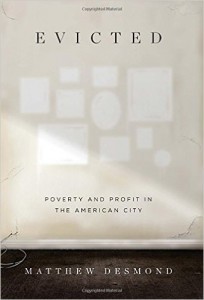
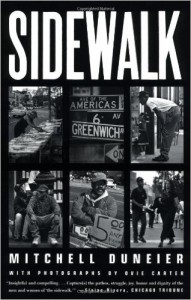
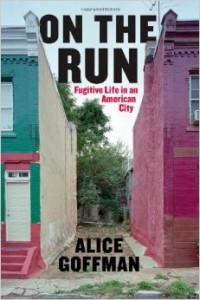
These books are all accessible to the educated reader, but I would argue that all three need to be read with a critical eye. That means thinking about who the researcher is, which stories he/she decides to include in the text and why, and how he/she navigates the connection between micro- and macro-sociological patterns. One of the more clear examples of the effect of human, subjective interaction, is from On the Run; the author’s key to acceptance in the community that she is researching is a Black man named Mike. Upon taking her under his wing, Mike describes to Alice (the author and researcher) unabashedly why she is a poor fit for his own community. “First off, my clothes were all wrong – they didn’t even match. My toenails were bare and uneven, and what was I doing wearing flip-flops in January anyway? […] The way that I spoke was strange, and I could stand to get a little more husky. Plus, I didn’t know how to walk or hold my body right” (2014:223). In scenes like this, I can imagine the young Alice Goffman, in her doe-eyed whiteness, sticking out like a sore thumb from a community that she grows to consider herself part of.
Another part of this week has to do with CC’s Sociology Department at large! Today, Friday the 29th, was Senior Thesis Day. Here’s what the schedule looked like:
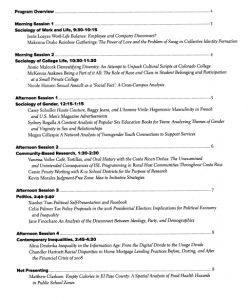
I attended the second session, “Sociology of College Life,” which had a fabulous mixture of qualitative/quantitative and local/national research completed by three women of Sociology that will be graduating this year. From inclusivity to sexual assault, the three presentations investigated social problems that affect college students around the country as well as the CC student body in particular. One of the main takeaways that connected to Symbolic Interactionism is the way in which the publicized image of CC (supposedly, we all ADORE the outdoors and spend all our free time in the woods, which is ironic given my “About Me” at the bottom of this page) unequally affects students of color in an exclusionary way. It’s research like this that will keep Colorado College a changing place, and one that cannot ignore its social issues thanks to students brave enough to confront them.
Theses are required of Sociology majors at CC, whether they be a research project or literature review, on a topic of their choosing. To be completed senior year, each student plans for two blocks to be conducting research, writing, and editing with the help of peers and an advisor of their choice. What follows are a few photos of the women that so successfully completed and presented meaningful research; I can’t wait to see them walk the Commencement stage in just two weeks!
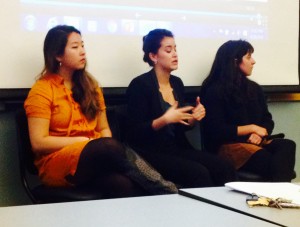
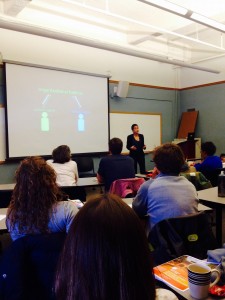
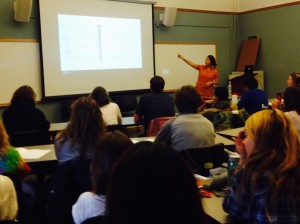
A final note: I spent my last time in the field at Penrose Hospital observing yesterday. My group has started to more specifically investigate the systematic separation of hospital personnel based on profession (as dictated by uniforms) and how those professions correlate to race. Gender dynamics have also been interesting to observe more closely; the profession of nursing is both largely female and largely social (they chat… a lot…) in the cafeteria.
It’s snowing buckets on campus! Nothing like a late April snowstorm in Colorado Springs!